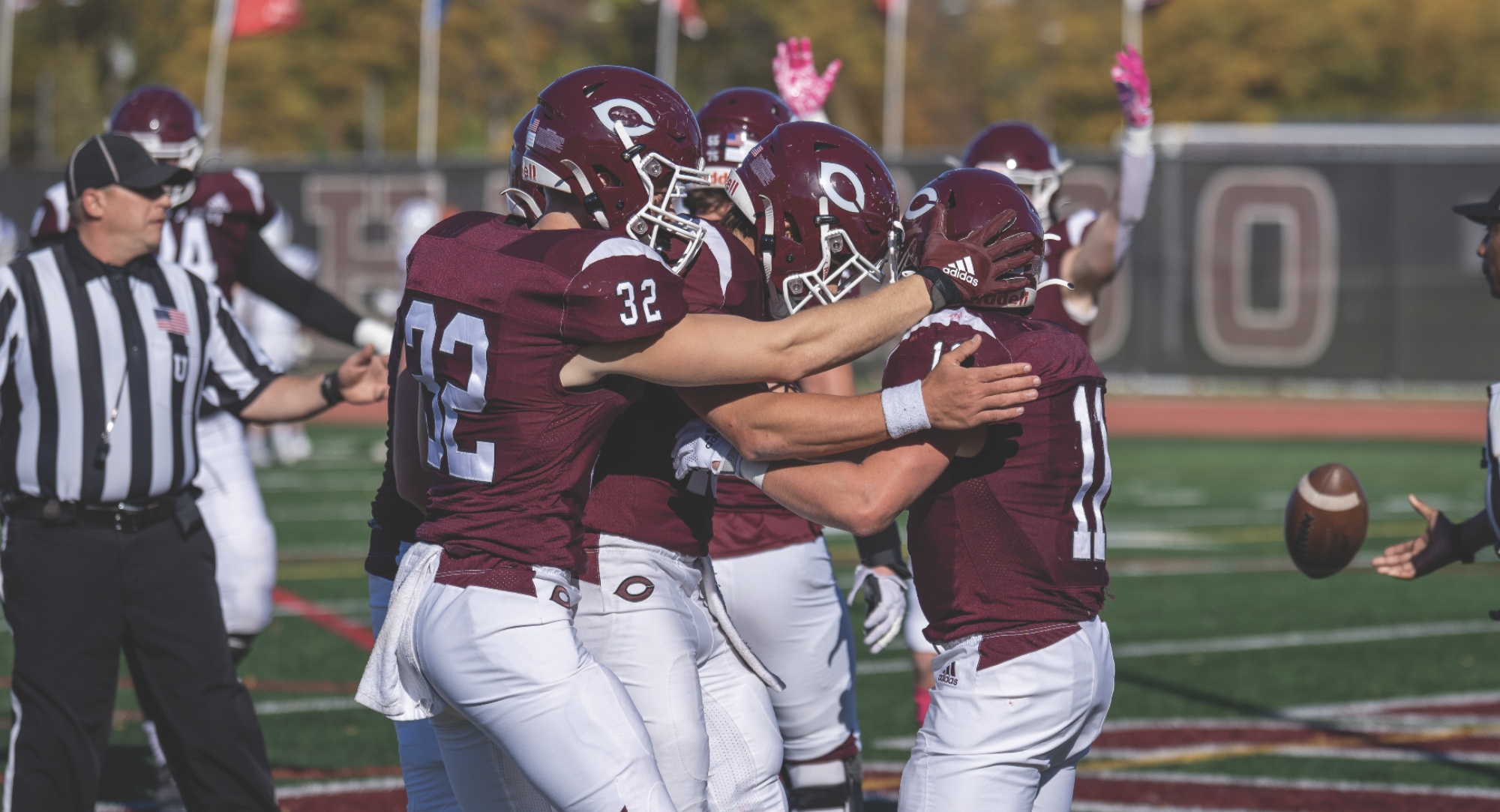
Maroons of Character teaches football players how to live virtuously.
Some collegiate football programs encourage players to watch game film on their own time. Most require players to lift weights. But at UChicago, players grapple together with a different challenge: how to grow in personal virtue and live a fulfilled life.
That is the mission of Maroons of Character, a yearlong program offered to UChicago football players by the Hyde Park Institute. (Although not formally affiliated with the University, the institute counts a number of faculty members among its collaborators, including Agnes Callard, associate professor in philosophy; Daniel Morgan, cinema and media studies chair; and Tahera Qutbuddin, professor of Arabic literature.)
Twice a quarter, the participants, all football players, gather to discuss a virtue—such as gratitude, humility, or temperance—that’s been chosen in consultation with Coach Todd Gilcrist Jr. and his staff. The goal, says Zack Loveless, AM’14, PhD’18, the institute’s director of programming and operations, is to get student-athletes to look beyond their day-to-day classwork and take the long view: “Your time here isn’t just about football and school—it’s about the rest of your life.”
The program’s roots lie in pre-pandemic 2020. The Hyde Park Institute already offered a yearlong program on medical ethics and character, codirected by Michael Hawking, affiliate faculty at the MacLean Center for Clinical Medical Ethics at UChicago Medicine, which aimed to help students cultivate the virtues necessary to navigate the stresses of a career in medicine. Gus Springmann, AB’13, now the volunteer director of Maroons of Character, imagined a similar program to help football players deal with the pressures of school and competition.
“Being a football player myself,” Springmann says—he was an offensive lineman for the Maroons from 2009 to 2012 and twice named to the University Athletic Association’s All-Academic Team—“I thought some of those same characteristics really resonated.” The Hyde Park Institute got the football coaches’ blessing, as well as their input on which virtues would be most useful for their players. It’s a bit of a return to the Maroons’ golden age, too: Loveless roots the discussion of virtues such as temperance in the writings of Aristotle, but moral character was also an important emphasis for the team under Amos Alonzo Stagg. Since the NCAA limits the number of hours athletes can be required to spend on their sport, participation in Maroons of Character is entirely optional.
“We start with some reading and reflection questions to get them thinking,” says Loveless. (The session on humility, for example, featured selections from an academic publication on psychology, the Harvard Business Review, and the Tao Te Ching). “What is this virtue? How do we understand it?” asks Loveless, whose degrees are in philosophy. “What are the contexts in which it applies? How is it important?”
After the discussion, a featured alumnus speaker talks about how that virtue impacted his own life. The students also spend time with an alumnus mentor who’s chosen on the basis of some alignment with his mentee, whether it be hometown or position played. They’re generally three to 12 years out of the College—old enough to have some perspective, but young enough to have experiences in common with the students.
At a panel discussion with alumni mentors, students asked how to build a new routine to replace the cycle of classes-practice-homework they’d followed continuously since their freshman year of high school; how to stay connected with friends when they move away; and whether they’d grow out of emotional ups and downs post-college. (“That doesn’t end,” said one of the alums. “You get better at handling it,” reassured another.) It’s Springmann’s hope that after a few years, the young men in the audience will swap places with the panelists, coming back to campus to mentor a new crop of football players in living virtuously.
